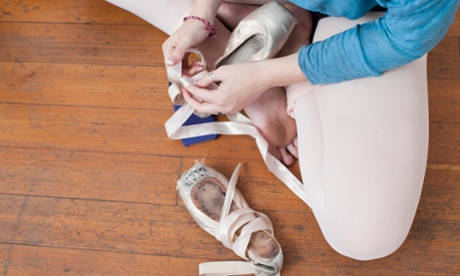
I received a phone call from one of my tutees, Elizabeth, at 10pm one night last week. She was crying, panicking about an end-of-year assessment she was due to take the next day. She apologised for calling so late, but said she needed to run through a topic we’d covered a few weeks back – she knew she wouldn’t be able to fall asleep otherwise. She is 12 years old.
I started tutoring Elizabeth at the beginning of the year and it took me a while to realise how manic her life is. It’s been a long time since I was 12, but as far as I can remember, my main concerns at that age were my annoying sisters, my hamster and what was on TV.
Elizabeth does not watch TV. She told me this early on, when we were discussing genre and I asked what types of programmes she enjoyed. When she told me she was too busy for television, I assumed she was exaggerating for my benefit. She wasn’t.
Our sessions take place at 7.30pm every Thursday – she is often still eating her dinner when I arrive because she also has ballet that evening, from 5.30pm to 6.30pm, as well as on Saturday mornings. I have offered to move our lesson to another night, but she doesn’t have any other free time. Drama club is all day Sunday, her maths tutor comes on a Monday, she has Latin on Tuesdays, trampolining on Wednesdays, and Fridays are for homework.
Oh, the homework. Elizabeth is a year 7 at one of the top-performing schools in the country and the amount she is expected to complete is staggering. Entire essays have to be redrafted overnight. Huge reading lists are issued regularly, so she struggles through the classics without, as far as I can tell, getting very much out of them or even understanding what happens in some of the more complex narratives.
In her school the focus on exams is clear, even for younger students. She has in-class assessments every couple of weeks, formal assessments at the end of each half term, and now, at the close of the year, two weeks of GCSE-style exams in the hall – these will be used to decide the classes for year 8 and, of course, Elizabeth is terrified that she will lose her place in the top sets.
She is truly a brilliant little girl. She is polite, inquisitive and intelligent, with a quick wit. She is excellent company. But she is exhausted. She yawns a lot and keeps catching eye infections. Recently we looked at an article about sleep for a comprehension exercise, and she told me that she doesn’t need eight hours – six is enough.
Her overload is not simply a matter of pushy parenting. They are eager for her to do well at school and happy to ferry her to extracurricular activities, but they are concerned now, too. Last half term, Elizabeth spent every day at her ballet school, from 9am to 5pm, rehearsing for a performance. Her family wanted her to stay at home, but she insisted. “Is this normal?” her mum has asked me more than once. “Is it good for her to be this busy?”
It is difficult, because Elizabeth is happy. She loves her clubs – she has lots of friends there and takes pride in the skills she is developing. She loves learning and is desperate to hold on to her place in the top sets for all of her subjects. She likes to talk about literature, in a way that I don’t think I was able to until I was studying for my A-levels.
I am repeatedly struck by the differences between our childhoods. My extra-curricular activities extended as far as Brownies, youth club and torturing a violin until my mum let me quit. I always did my homework, although there was certainly a lot less of it. I remember being quite bored. There was fun with my friends, of course, but there were also lots of evenings and weekends that were completely dull. And it was in that boredom that I learned to entertain myself: reading for pleasure, messing about in the garden, hanging out with my hamster. That’s not to say that all of these were equally beneficial, but they were part of being a child.
Elizabeth sometimes doesn’t seem like a child. She’s more like a mini-executive, balancing a packed schedule and the weight of expectation placed on her by the school, her high-flying peers and, increasingly, by herself. I am absolutely certain that she will go on to do great things. I just hope that, among the many talents she is mastering, she learns how to slow down and enjoy being a kid.
- The name of the student in this piece has been altered.
Follow us on Twitter via @GuardianTeach. Join the Guardian Teacher Network for lesson resources, comment and job opportunities, direct to your inbox.

